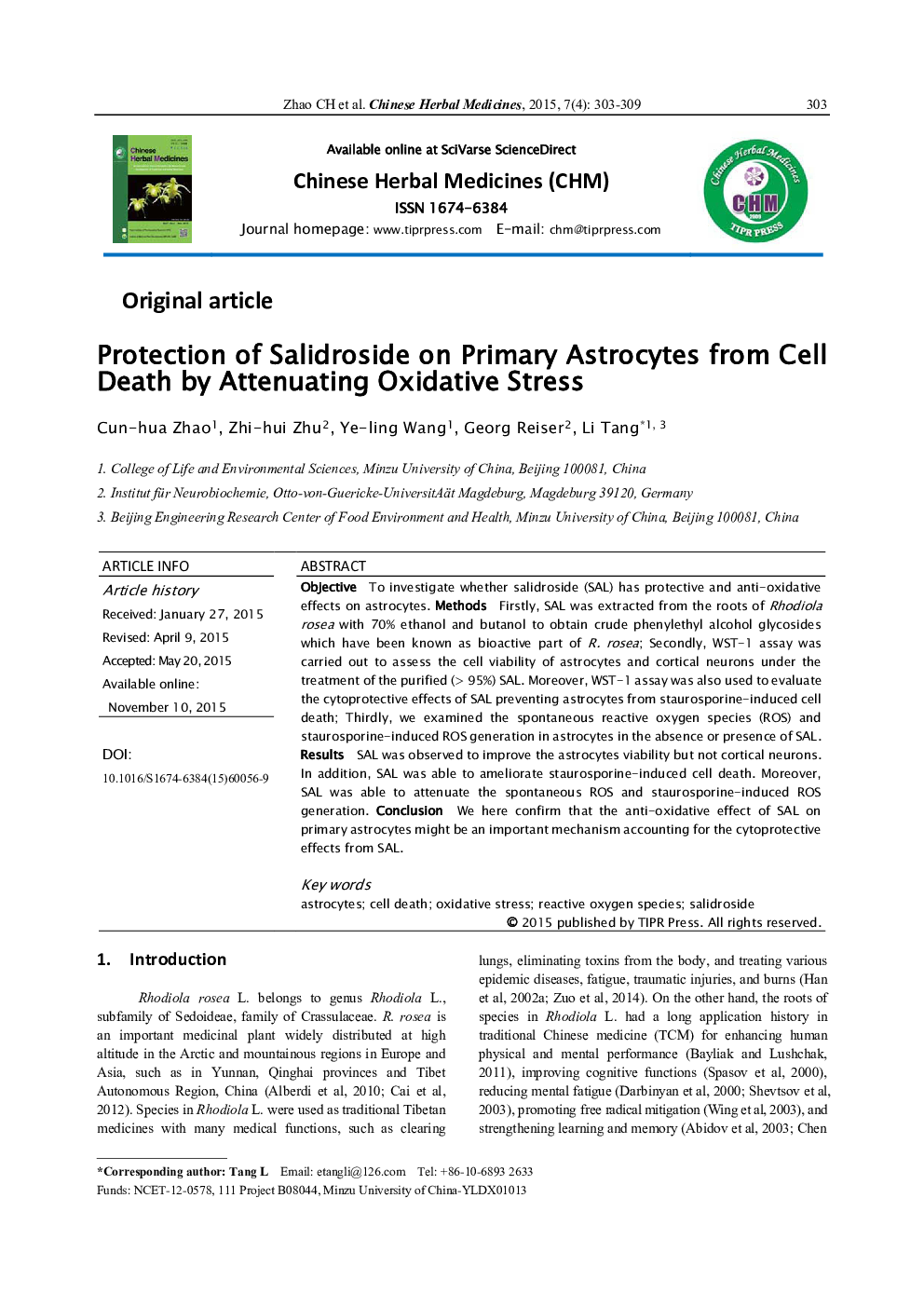| Article ID | Journal | Published Year | Pages | File Type |
|---|---|---|---|---|
| 3097892 | Chinese Herbal Medicines | 2015 | 7 Pages |
ObjectiveTo investigate whether salidroside (SAL) has protective and anti-oxidative effects on astrocytes.MethodsFirstly, SAL was extracted from the roots of Rhodiola rosea with 70% ethanol and butanol to obtain crude phenylethyl alcohol glycosides which have been known as bioactive part of R. rosea; Secondly, WST-1 assay was carried out to assess the cell viability of astrocytes and cortical neurons under the treatment of the purified (> 95%) SAL. Moreover, WST-1 assay was also used to evaluate the cytoprotective effects of SAL preventing astrocytes from staurosporine-induced cell death; Thirdly, we examined the spontaneous reactive oxygen species (ROS) and staurosporine-induced ROS generation in astrocytes in the absence or presence of SAL.ResultsSAL was observed to improve the astrocytes viability but not cortical neurons. In addition, SAL was able to ameliorate staurosporine-induced cell death. Moreover, SAL was able to attenuate the spontaneous ROS and staurosporine-induced ROS generation.ConclusionWe here confirm that the anti-oxidative effect of SAL on primary astrocytes might be an important mechanism accounting for the cytoprotective effects from SAL.
